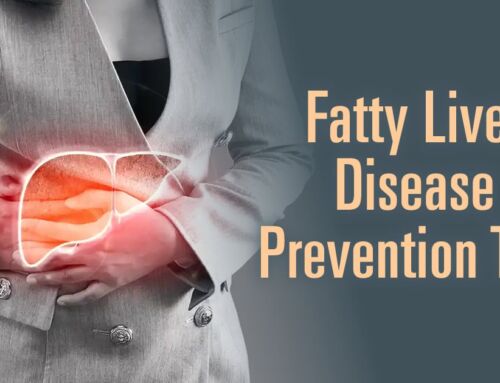You’ve probably seen digestive enzymes while strolling the aisles of your local drugstore. Maybe you’ve even wondered if you should be taking them or if they’d benefit you. When you’re experiencing gut health issues like gas, bloating, cramping, or diarrhea, it can be tempting to grab whatever is on the shelf and hope it will make your symptoms go away.
Digestive enzymes are very useful for treating true enzyme deficiencies. But how do you know if you’re deficient or if this is the right treatment for you? Well, let’s dive into the science behind digestive enzymes and how to know if they’re right for treating your symptoms.
What are Digestive Enzymes?
Digestive enzymes are small proteins that break down food molecules like complex carbohydrates, fats, and protein. Once broken down, they’ve moved from the small intestine into the bloodstream to be used by your body. If you’re lacking digestive enzymes, you may suffer from malnutrition or bacterial imbalance in your gut because the food you eat isn’t able to be broken down and used by your body. Also, without digestive enzymes, complex carbohydrates can ferment in your bowel resulting in excess gas, pain, and bloating.
The main types of digestive enzymes include:
- Proteases – break down proteins
- Amylases – break down complex carbohydrates
- Lipases – break down fats
What Are the Benefits of Digestive Enzymes?
Some of the benefits of digestive enzymes include:
- Decreased inflammation
- Decreased bloating and gas
- Increased energy
- Supported metabolism
- Improved digestion and gut health
- Improved immunity
- Increased food absorption
- Managed food intolerances
What Causes Digestive Enzyme Deficiency?
Now that we understand what digestive enzymes are, let’s take a look at what causes someone to be deficient in these important digestive components. There are many factors at play in these situations and this is why it’s important you speak with your gastroenterologist before taking a digestive enzyme.
Some digestive conditions that contribute to being deficient in digestive enzymes include:
- Celiac Disease
- Pancreatitis
- Crohn’s Disease
- Irritable Bowel Syndrome (IBS)
There are also underlying digestive conditions that lead to digestive enzyme deficiency such as:
- Leaky gut
- Stress
- Inflammation
- Decreased stomach acid production
- Chronic stress
- Toxins
- Poor diet
- Gut infections
- Small intestinal bacterial overgrowth (SIBO)
How Do I Know if I Have a Digestive Enzyme Deficiency?
When someone comes into my clinic with gas, bloating, or abdominal cramps associated with eating, I begin by identifying the deficiencies and intolerances that may be at play. Other times, my patients have a specific diagnosis like IBS where I need to confirm or rule out suspected deficiencies. While the breath tests I use are very useful, it’s important to keep in mind that there’s no real way to precisely measure exactly how deficient you may be in a particular enzyme.
The four breath tests I use to identify various enzyme deficiencies and intolerances include:
- Lactose
- Fructose
- Sucrose
- SIBO
These breath tests are an easy, non-invasive method to measure your enzyme levels in a way that causes no discomfort or extra time for you. I typically like to get the results from all four tests to ensure you have a well thought out treatment plan that’s thorough and specific to your unique needs. Oftentimes, my patients have a food intolerance they didn’t even know they had that can be easily managed to help relieve their symptoms.
Treating a Digestive Enzyme Deficiency
Once we know you have an enzyme deficiency, our next step is to form a treatment plan to get you back to feeling your best. I’ve found that when my patients are deficient in one enzyme pathway, they’re deficient in others as well. There are a few ways that work very well to replenish digestive enzyme levels.
Over the counter supplements
Over the counter (OTC) supplements are an inexpensive, yet effective option for many to correct an enzyme imbalance and relieve symptoms. They’re also typically my first choice for those with IBS or symptoms of leaky gut because they’re effective at reducing symptoms like gas, bloating, and diarrhea. After taking OTC supplements, I like to retest your enzyme pathways to ensure the supplement is fully supporting you.
I recommend the Digestive Gold brand of enzyme supplements or something similar to that brand. Your pharmacist can recommend a product based on that reference. It’s important to note that digestive enzyme supplements can be taken indefinitely, but you may be able to reduce your dosage or stop completely after a few months. If symptoms return, restart at your previous dosage.
Prescription Digestive Enzyme Medications
There are many prescription medications available that work well to rebalance your digestive enzyme levels. It’s important to discuss with your physician what medication is right for you based on which digestive enzymes you’re deficient in.
Diet Changes
I recommend reducing carbohydrate intake to help curb the symptoms of digestive enzyme deficiency because it’s simple, yet effective. This is because when you eat an excess amount of carbohydrates, you increase the workload of the pancreas and small intestine because they need to produce more enzymes to properly digest the carbohydrates. Please consult with your doctor or a nutritionist whenever making dietary changes to ensure they are optimal for your objective and that they will not create any nutrient deficiencies.
Should You Take Digestive Enzyme Supplements?
Taking digestive enzyme supplements is very helpful to those who’ve been diagnosed with a digestive enzyme deficiency. That’s because they’re beneficial at treating certain symptoms. But, enzyme supplements are often used in situations where there’s little evidence they do any good.
This is why it’s important to talk to your gastroenterologist before deciding to take a digestive enzyme supplement to treat a symptom or condition. If you’re in the San Antonio area and are experiencing the symptoms of digestive enzyme deficiency, click here to make an appointment or give us a call at 210-615-8308. I look forward to hearing from you!






